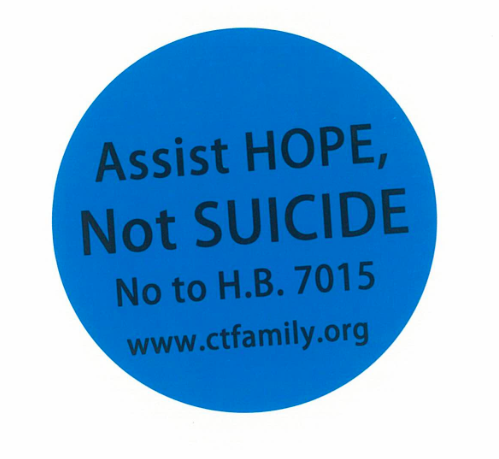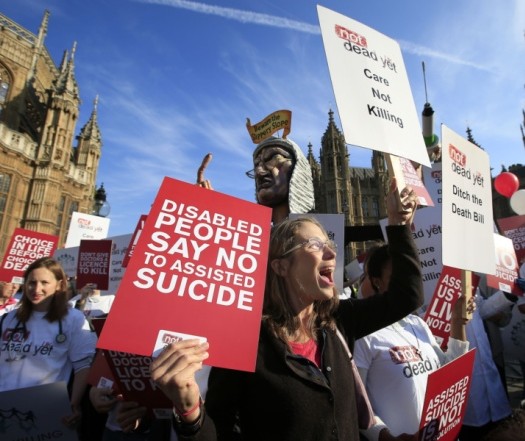H.B. No. 7015 has "bizarre" provisions and "unintended and very unwelcome consequences."

The State of Connecticut Division of Criminal Justice submitted written testimony to the Joint Committee on Judiciary strongly objecting to HB 7015, an assisted suicide bill. They are very concerned with the “falsification of death certificates” because it conflicts with the legal certification of the form. They state that “the courts will be confronting a potential Murder prosecution where the cause of death is not accurately reported on the death certificate.” Other provisions of the bill are called “bizarre” and rife with potential “unintended and very unwelcome consequences” for Connecticut’s citizens and its criminal justice system.
Family Institute of Connecticut is familiar with the other inevitable consequences of assisted suicide – one really  can’t call them “unintended”. They include expansion to people who are mentally incompetent (at an October 2014 event in Hartford, Compassion & Choices President, Barbara Coombs Lee stated with regard to including people with dementia and cognitive declines, that “It is an issue for another day but is no less compelling”) and expansion to people with greater than a 6 month life expectancy (a bill was introduced to expand assisted suicide in Oregon to 12 months prognosis), expansion to children and more. Connecticut would be better served by ensuring that people don’t have to abandon treatment just because they enter hospice, increase funding for home health care aides and attendants, and mandatory training for doctors in cutting edge pain remediation techniques. Our scarce resources could help many more people in this state without resorting to aiding suicide and assisting unintended consequences.
can’t call them “unintended”. They include expansion to people who are mentally incompetent (at an October 2014 event in Hartford, Compassion & Choices President, Barbara Coombs Lee stated with regard to including people with dementia and cognitive declines, that “It is an issue for another day but is no less compelling”) and expansion to people with greater than a 6 month life expectancy (a bill was introduced to expand assisted suicide in Oregon to 12 months prognosis), expansion to children and more. Connecticut would be better served by ensuring that people don’t have to abandon treatment just because they enter hospice, increase funding for home health care aides and attendants, and mandatory training for doctors in cutting edge pain remediation techniques. Our scarce resources could help many more people in this state without resorting to aiding suicide and assisting unintended consequences.
You can read the full version of the Testimony of the Division of Criminal Justice in the public record for HB7015.


















